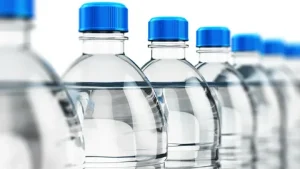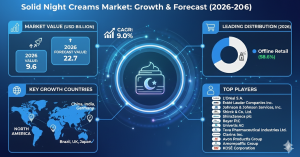Drinking water is a basic need for our body to function. The majority of our body is made of water which is enough to highlight water is essential for survival. While safety, quality, and cleanliness can’t be ignored before considering drinking water. Moreover, there is a major shift from tap to bottled water owing to concern about the quality of tap water. The bottled water industry has seen significant growth in recent years, with an increasing number of brands and varieties available in the market.
The global market for bottled water was valued at US$ 318.29 billion in 2022. Additionally, growth is anticipated to pick up during the assessment period of 2022-2032, increasing at a staggering 5.5% CAGR to reach US$ 543.69 billion.
Contaminated Tap Water and Propelling Waterborne Diseases Key Growth Drivers in this Market.
Because of problems with pollution or deteriorating infrastructure, certain regions may have tap water that is contaminated or hazardous to drink. Since bottled water often comes from protected subterranean springs or wells and has undergone filtration and purification procedures, it is regarded as a safer choice. Moreover, brands offering bottled water have raised a perception that it is beneficial over tap water, and this is likely to turn in favor of bottled water sales in upcoming years.
Contaminated tap water is often a major reason for waterborne illnesses. These illnesses, which are brought on by microorganisms found in contaminated water sources, can result in a variety of health issues, such as diarrhea, dehydration, and gastrointestinal distress. In areas where tap water is not reliably safe to drink, bottled water is often seen as a safer alternative. However, for these areas facing water crisis mobile water treatment could be an option but these systems can be contaminated if they are not properly cleaned and disinfected between uses. This can lead to the spread of waterborne illnesses.
Market Dynamics Through the Lenses of Consumers
Variety, Taste, and Convenience
With more companies entering into this arcade, a variety of water is being offered such as mineral water, purified water, sparkling water, and spring water. This range of options also varies as per the taste and preferences. Moreover, bottled water is a portable option for consumers to carry on the go and also can be purchased from grocery stores and other retailers. Apart from the aforementioned three parameters the upgraded lifestyle has played a crucial role in setting up a ground for brands in this industry.
Propelling Personal Incomes and Mushrooming Health Awareness Are Key Customer Inclinations
Owing to economic growth across the globe purchasing power is increasing. This responsibility inclines people towards a better lifestyle and health-related choices. The urban population is increasingly becoming demanding healthy food and beverages owing to consciousness and the spread of information due to the internet. People are willing to spend on healthy alternatives and consistently insist on sustainable alternatives.
Opportunities for Manufacturers
Use as an Alcohol Drink Enhancer Could Drive Demand for Bottled Water
Bottled water can be used in the preparation of cocktails and other mixed drinks. For example, it can be added to dilute the alcohol content or used to rinse glasses between drinks. Due to its potent flavor, bottled water is used in margaritas as a drink enhancer and to alleviate dehydration, which has a substantial impact on the market’s growth.
Shift Towards Functional and Sparkling water
The market for mineral-added water and sparkling water is expected to rise. Functional water refers to bottled water that has added vitamins, minerals, or other health benefits. These products are becoming more popular as consumers seek out healthier beverage options. As a soda substitute, sparkling water has grown in popularity in recent years. To accommodate this need, a lot of bottled water providers now provide sparkling water options.
Sustainable Packaging Gaining Prominence
Consumers are increasingly concerned about the environmental impact of plastic packaging. As a result, there is a growing demand for sustainable packaging options, such as biodegradable or compostable bottles. Some brands have started to restructure their products in sustainability aspects.
For instance-
- Just Water is a brand that offers water in a paper-based, plant-derived carton with a plant-based cap.
- Voss offers glass bottled water which is completely recyclable.
With the rising attention of consumers across the globe bottled water market is expected to continue growing in the next decade. However, there may be increased scrutiny of the bottled water industry in the coming years, particularly regarding the environmental impact of plastic bottles and the sourcing of water. As technology advances, there may be new innovations in packaging that make bottled water even more convenient and sustainable. For example, there may be more emphasis on reusable or refillable packaging options. Brands achieving health, innovation, and reusable packaging are likely to retain a competitive edge in the upcoming time.



